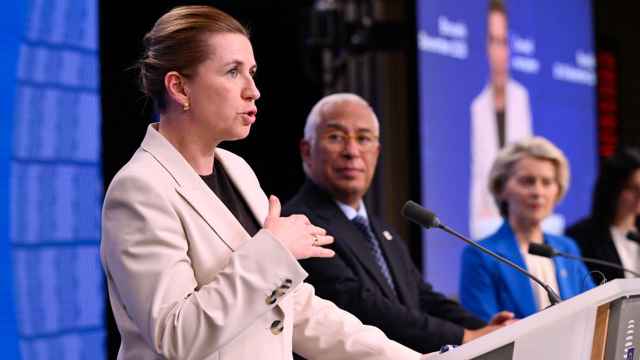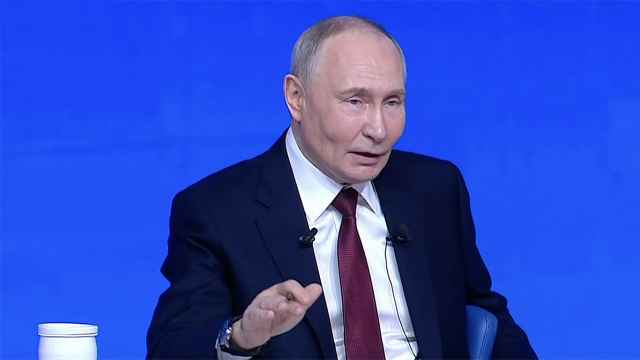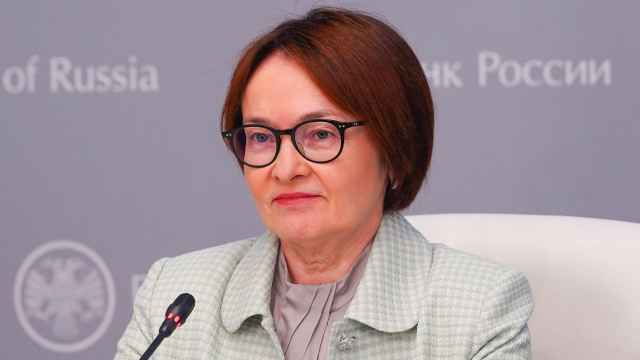The attempt by young protestors to occupy Wall Street found support not only among the majority of Americans and astonished Russians, but also led many to ask an unexpected question: Why do we even need stock exchanges and banks?
Every day on television we see self-confident financial analysts in expensive business suits and ties talk about the rise and fall of shares, “volatile markets” and “upward and downward trends.” They point to charts on which various indexes drop one minute and rise the next.
The roots of all of the stock market craze can be traced to 1409 in the Flemish city of Bruges. Merchants with surplus commodities would gather in a square adjacent to a house owned by an aristocratic family named Borse to exchange information, sell wholesale lots of goods to each other and negotiate their delivery. This was the origin of the German word “borse” and the Russian word birzha.
When the Dutch created the East India Company, all of Amsterdam turned out to buy shares. Not only merchants and shopkeepers wanted a piece of the action, but even apprentices, hired hands and servants rushed to invest their guilders. This was the very “people’s capitalism” that they had been trying unsuccessfully to create for the previous 40 years.
And then one unpleasant aspect of the new stock exchange emerged: It became possible to speculate and manipulate the prices of stocks and commodities, create a wave of artificial demand and provoke panic on the stock markets. The mob of stock traders is no different from any other mob. Under certain conditions, they can quickly lose their heads — both in terms of a herd-instinct excitement over an expected boom or an equally strong panic over an expected crash.
As early as the 17th century, it became evident that speculative trading on what are now called “virtual” stocks and commodities was even more profitable than trading with the end users of goods. The turnover was faster, and the capital, without being tied to physical objects, was freed from a host of limiting factors. It eventually reached a point at which, instead of stimulating economic processes, the speculative financial games began to stifle economic growth and production, create cash shortages in industry and small business and inflate prices for food and raw materials.
And when the gap between the games on the stock exchange and the real economy became too great, it resulted in collapse. The first such collapse occurred in the 17th century and was connected with the passion for tulips then sweeping Europe. The tulip bulbs were grown in Holland, and the increasing demand pushed their price ever higher. Traders began speculating on the price of tulips. But then the bubble burst, and the value of tulips and other goods plummeted. First Holland, and then all of Europe, was plunged into an economic crisis. After that, governments across the continent shifted from promoting free trade to more interventionist control of their economies.
Today, the Group of 20 policy aimed at preventing economic collapse is only prolonging and deepening the crisis. In pursuit of their policy, those governments are prepared to sacrifice entire countries, including Greece, Portugal and Italy. But those measures won’t help. A global stock market and financial collapse is not only inevitable, but necessary because until it happens, the world economy will have no chance for recovery.
Boris Kagarlitsky is director of the Institute of Globalization Studies.
A Message from The Moscow Times:
Dear readers,
We are facing unprecedented challenges. Russia's Prosecutor General's Office has designated The Moscow Times as an "undesirable" organization, criminalizing our work and putting our staff at risk of prosecution. This follows our earlier unjust labeling as a "foreign agent."
These actions are direct attempts to silence independent journalism in Russia. The authorities claim our work "discredits the decisions of the Russian leadership." We see things differently: we strive to provide accurate, unbiased reporting on Russia.
We, the journalists of The Moscow Times, refuse to be silenced. But to continue our work, we need your help.
Your support, no matter how small, makes a world of difference. If you can, please support us monthly starting from just $2. It's quick to set up, and every contribution makes a significant impact.
By supporting The Moscow Times, you're defending open, independent journalism in the face of repression. Thank you for standing with us.
Remind me later.





